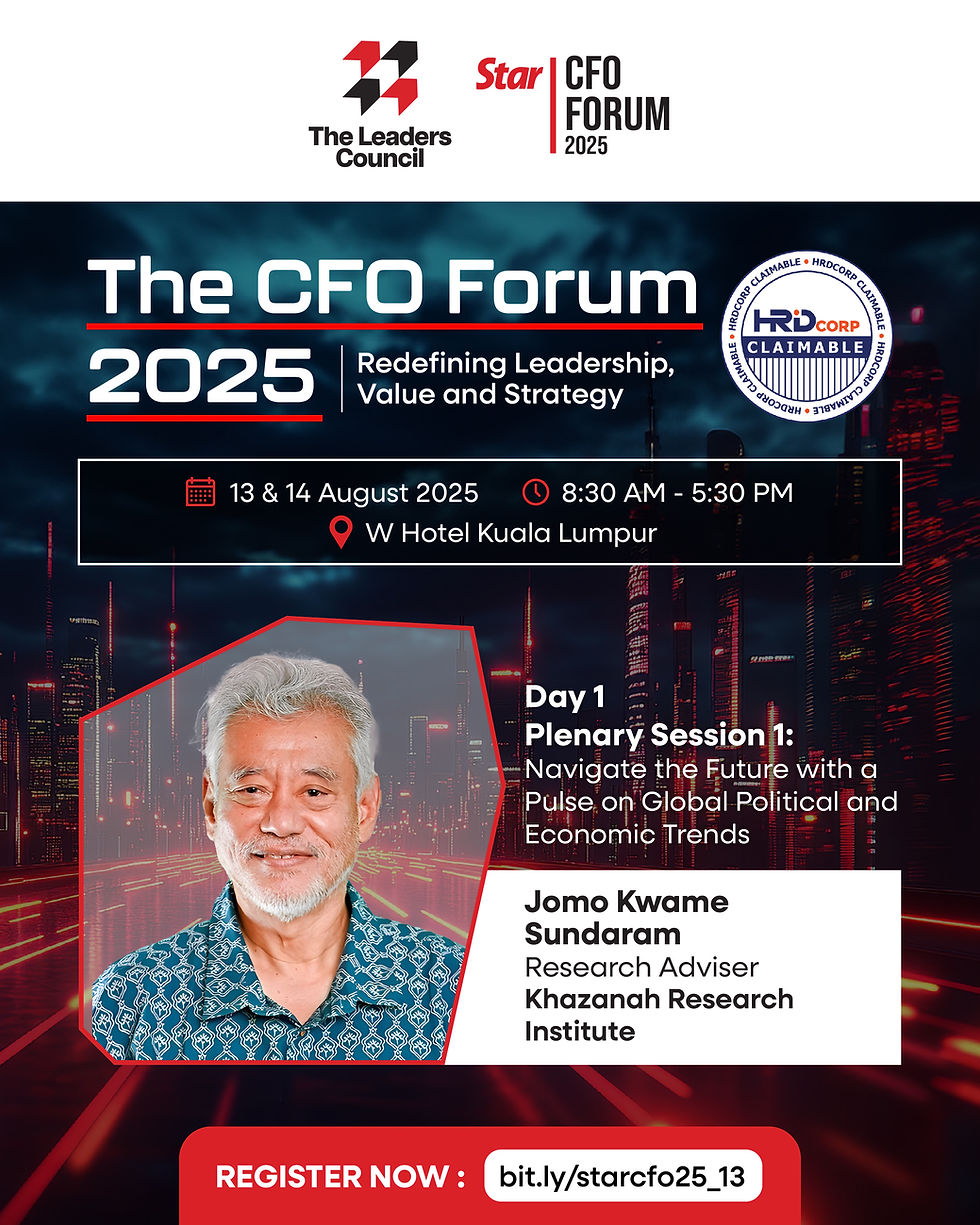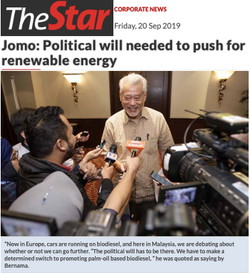- Sep 23, 2025
- 4 min read
JOHANNESBURG, South Africa, Sep 23 2025 (IPS) - US President Trump’s snide barbs against his appointee, US Federal Reserve Bank Chairman Jerome Powell, have revived support for central bank independence – long abused by powerful finance interests against growth and equity.
Independent central banks are supposed to improve the quality, equity, and growth impact of monetary policy. Instead, they have primarily served powerful financial interests, with contractionary and regressive effects leading to slower, unequal growth.
Independent of whom?
Central banks were established to determine monetary policy to shape financial conditions to achieve national economic objectives.
In recent decades, the new conventional policy wisdom has been that independent central banks should set monetary policy. Thus, they have been influenced by powerful financial interests, typically foreign, in smaller, open developing countries.
In the last half-century, many governments have changed laws under the influence of international finance to legislate central bank independence from governments of the day, especially the executive and legislative branches.
Meanwhile, most central banks have come to equate financial stability with price stability as ‘inflation targeting’ became the leading policy fetish.
When inflation rises, central banks raise interest rates, which reduces economic activity. However, some central banks of open economies, especially those pegging to major international currencies, target the exchange rate.
Thus, reducing inflation by conventional means worsens contractionary pressures. Many governments now face the threat of ‘stagflation’, i.e., recession with inflation. Central banks recognise this trade-off regarding how much growth has to decline for inflation to fall.
With interest rate management as their primary policy tool, central banks may raise interest rates in anticipation of inflation, despite its adverse consequences for growth, income and employment.
Such contractionary effects have reduced wages and jobs worldwide. Only a few, mainly large developed economies, have had other priorities, such as growth or employment.
Ironically, the end of the Bretton Woods fixed exchange rates regime and the counter-revolution against Keynesian economics from the late 1970s ensured the irrelevance of Milton Friedman’s monetarist emphasis on central banks’ money supply targeting.
Worsening inequity
Central banks worldwide respond to and anticipate inflation by raising interest rates to curb inflation.
‘Inflation targeting’ causes significant collateral damage, typically reducing growth, income and employment. Poor households’ incomes are likelier to fall, especially with labour-displacing technological change, such as mechanisation, automation, and artificial intelligence (AI) applications.
As unemployment increases, poor workers are more likely to lose jobs, especially hurting poorer families. Banks have typically profited handsomely from such situations, although most people are worse off.
With lending rates rising, banks get even more interest as borrowing rates lag, not increasing as much. Max Lawson cites an IMF study finding that the adverse effects of higher interest rates are “not counterbalanced by the positive effects of lower interest rates.”
The US Fed strongly influences central banks worldwide. Higher Fed interest rates from 2023, in response to minor inflationary pressures, have hurt developing countries, especially the poorest.
As most Global South companies and governments have incurred dollar-denominated debt, countries’ central banks raised interest rates to deter capital outflows.
Quantitative easing
‘Quantitative easing’ (QE) refers to central bank interventions buying financial assets. Such interventions were sought as it is difficult for central banks to cut interest rates below zero to revive economies. QE seemed to fit the bill.
Commercial banks typically get more for their deposits with the central bank when it raises interest rates. Thus, they receive considerable additional windfall interest payments from the central bank risk-free.
QE programmes seek to raise asset prices. Central banks buy assets such as government debt, inducing private investors to acquire riskier assets. US government debt is still the most important financial asset in the international monetary system.
Thus, QE tries to induce growth, presuming earlier contractionary policies will continue to curb or ‘moderate’ inflation.
This has even been justified as prudent, as inflation rates were below target despite interest rates near zero.
Major Western central banks adopted QE following the 2008-09 global financial crisis. Many governments spent even more in response to the COVID-19 pandemic from 2020.
Such efforts sought to counter the downward spiral of falling financial asset prices. The US Fed’s QE intervention involved ‘portfolio rebalancing’. It bought over $600 billion in US Treasury bonds and almost $300 billion in mortgage-backed securities.
Wealth is concentrated in relatively few hands in most societies. Jordi Bosch showed the top ten per cent holding 11 times more wealth than the bottom half in the euro zone, while the bottom fifth had more debt than assets.
QE interventions increase financial asset prices, enriching owners, especially the rich, who have more assets. As prices rise, their worth generally increases. Hence, such central bank interventions further enrich the already wealthy.
As the world struggles to cope with challenges posed by the current conjuncture, we must not jump out of the frying pan back into the fire kindled by central bank independence.
Related IPS Articles:
Available online at: Beware Independent Central Banks





















